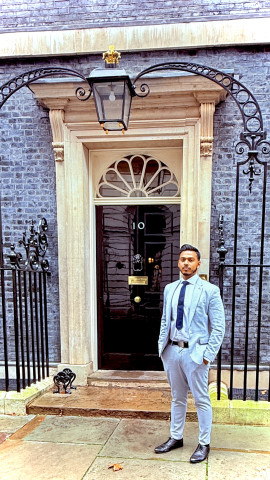Removing the MP Filter for Victims: A Welcome Step Towards Greater Access to Justice

On 29th January 2025, a significant milestone was reached in the journey to improve access to justice in the UK. With the removal of the MP filter under the Victims and Prisoners Act 2024, members of the public are now able to bring complaints about their rights under the Victims Code directly to the Parliamentary and Health Service Ombudsman (PHSO) without first having to go through their MP. This long-overdue reform represents a welcome first step in modernising our complaints system and ensuring that more people can seek redress when they have been failed by public services.
The MP Filter: A Barrier to Justice
For years, select committees, campaigners and stakeholders have all highlighted how the MP filter has restricted access to justice. This requirement has meant that individuals facing difficulties with government departments had to first persuade their MP to refer their complaint before the Ombudsman could even investigate. Importantly, this filter never applied to NHS complaints, meaning that complainants in different parts of the public service system have faced inconsistent barriers to seeking redress as a result of the fragmented system within which we’ve been operating.
The evidence that the MP filter acts as a significant barrier to those seeking justice is clear. Of the people that we’re required to turn away for ‘incorrectly’ not having an MP’s referral, 86% will never return and simply give up. This has led to a system where too many potentially legitimate complaints never reach us, leaving people who are seeking justice after being failed by public services without an independent avenue for redress.
Learning from the Housing Ombudsman’s Experience
The removal of the ‘democratic filter’[1] for the Housing Ombudsman in October 2022 provides a compelling case study for why this change was necessary. Following the reform, the Housing Ombudsman experienced an immediate c.25% increase in their complaints reported in November 2022 compared to the previous month, showing that removing bureaucratic hurdles can (and do) lead to improved access to justice and a fairer complaints process. The positive impact of this change reinforces the need for similar reforms for PHSO to modernise our service and uphold public service accountability.
[1] It should be noted that the Housing Ombudsman’s democratic filter allowed referrals to be made by local councillors as well as MPs, and complainants could also refer themselves directly to the Housing Ombudsman without and MP/councillor after waiting 8 weeks which wasn’t as restrictive as PHSO’s filter.
A Breach of the Venice Principles
The UK has long positioned itself as a champion of democracy and the rule of law, yet the MP filter contradicts the very principles we claim to uphold. The Venice Principles—endorsed by the UK as a co-sponsor—are clear that Ombudsman institutions should be “independent, accessible, and free from unnecessary restrictions”. The MP filter stands in direct contradiction to these principles, limiting the ability of the public to seek justice in a timely and efficient manner. If the UK is serious about its commitment to these international standards, it must act now to remove one of the last remaining barriers to accessing the Ombudsman.
The Last Remaining Outlier
Even with the removal of the MP filter under the Victims Act, PHSO is still left as the last remaining Ombudsman scheme in the UK operating with such an outdated and restrictive filter. No other comparable Ombudsman—either in the UK or internationally—requires complainants to first obtain permission from an elected representative (who can often be a Minister of the very department you wish to complain about). The time has come to remove this final obstacle and ensure that every person in the UK has direct and free access to independent scrutiny when things go wrong with public services.
What Happens Next?
While the removal of the MP filter under the Victims Act was a welcome development, it was only a partial solution. The job is not yet done. This remaining restriction must be lifted to bring the UK in line with international best practice and to fully align with the Venice Principles. Access to justice should not depend on political gatekeeping—it should be a free, fundamental right for all.
The Government must now take the next logical step and commit to removing the MP filter entirely, either through existing legislative vehicles such as the ‘Hillsborough Law’ Bill or updating the previous Public Service Ombudsman Bill. Only then can we ensure that the Ombudsman system is truly independent, accessible, and able to deliver justice for all those who need it.
